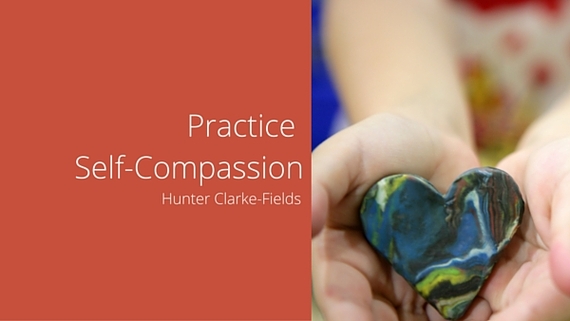My adorable 4-year old child did it. It was the last straw for me. My pushed-down rage and frustration came erupting out like a volcano. I yelled. I grabbed her arms. I scared her.
And this thought came: "I'm a shitty mother."
As we go about our daily lives, we constantly interpret the situations we find ourselves in. We have an internal voice that determines how we perceive every situation. By default, we believe what we think, but it's not always helpful.
In fact, we mamas are so hard on ourselves! We are often much harsher and more cruel to ourselves than we ever would be to a friend, or even someone we don't like very much, like I was.
But this negative self-talk and self-shaming doesn't make us more effective or more peaceful parents. In fact, it does the reverse. Brene Brown teaches us that shame leaves us feeling trapped, powerless and isolated. When we feel like that, we are unable to have the kind of kind and compassionate kind of presence that we want with our children.
Plus, if we want our children to have self-compassion, we must model it. If we live with the habit of self-shame and harshness, they will unfortunately pick that up.
So how do we break this pattern? By practicing self-compassion.
There are three elements to self-compassion.
- Treating ourselves with kindness. Instead of being your harshest critic, practice instead to be your own best friend. In those difficult moments when you've not lived up to your standards, offer yourself kindness and understanding. What would you say to your best friend in such a moment? When I lost my temper at my daughter, I felt immense regret at not living up to my standards. I apologized and embraced her when we were both ready. For myself, I recognized that I had a thought, "I'm having a thought that I'm a bad mother." Then I changed the internal conversation, offering myself as much sympathy and kindness as I could muster. I gave myself warmth and understanding about how difficult parenting is and taking care of my strong feelings is. Then I'm able to move my attention back to taking care of my daughter.
Try this: Close your eyes and breathe deep. Put a hand on your heart and say "I forgive you" to yourself. Notice critical thoughts and label them "thinking." Try saying this five times to yourself to start the process of self-compassion.
Also, kids push our buttons from childhood inadvertently. They show us what we still need to work on. When you see that you are getting frustrated, take a break. Better to leave and calm down than to explode in anger. This is a practice of self-compassion too.
Do you offer yourself compassion or criticism? Start the conversation in the comments below!
